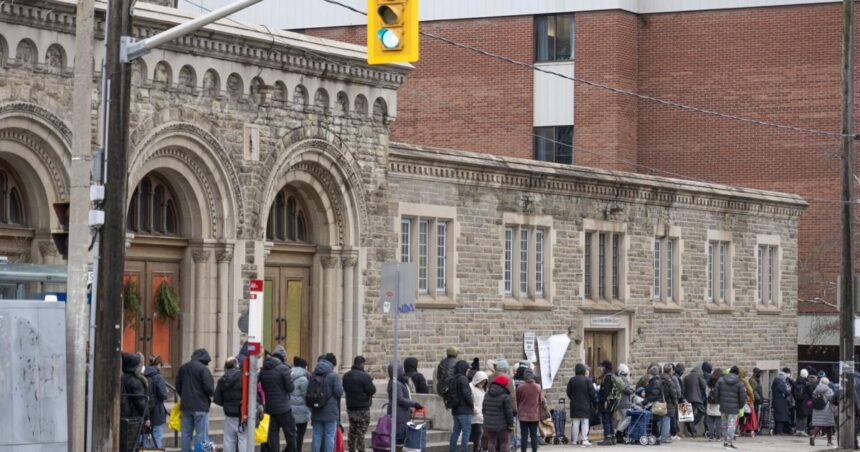The grim reality of Canadian inequality has reached new heights. Statistics Canada’s latest data reveals what many working families already feel in their daily struggles: the gap between the country’s wealthiest and everyone else continues to widen at an alarming pace. While economists debate terminology, ordinary Canadians are living a stark truth—the middle class is shrinking, and economic mobility has become increasingly elusive.
What makes this moment particularly troubling is the federal government’s response. Rather than addressing the structural issues driving inequality, Ottawa has opted for what can only be described as superficial “doge-style” budget cuts—small, scattered reductions that create the appearance of fiscal responsibility while failing to tackle the underlying problems.
Consider the numbers: the richest 10% of Canadians now control over 50% of the country’s wealth, while the bottom 50% share just 6%. This disparity isn’t merely a statistical curiosity—it represents millions of Canadians working harder than ever while watching their purchasing power diminish. The average worker must now allocate more than 50% of their income to housing in major urban centers, a figure that would have been unthinkable a generation ago.
The government’s recent announcement of 15% departmental budget cuts might sound reasonable on paper, but the approach reveals a fundamental misunderstanding of how inequality functions. These cuts disproportionately affect services that middle and working-class Canadians rely on, while barely touching the mechanisms that have allowed wealth concentration to accelerate.
The history of income inequality in Canada tells a compelling story. From the post-war period until the 1980s, economic growth generally benefited Canadians across all income brackets. However, since the neoliberal turn of the 1980s, we’ve witnessed a decoupling of productivity and wages. Workers produce more than ever, yet their compensation has stagnated relative to the value they create.
What’s particularly striking about the current moment is how predictable the outcome of these policies will be. Research from the Canadian Centre for Policy Alternatives has consistently shown that austerity measures during periods of economic uncertainty exacerbate inequality rather than mitigate it. When governments cut public services, they effectively transfer costs to individuals—individuals with vastly different capacities to absorb those costs.
The current approach to budget cutting mirrors what we’ve seen in previous conservative governments, but with a progressive veneer. The cuts are presented as necessary belt-tightening rather than ideological choices. Yet the decision to cut services while maintaining a tax structure that benefits the wealthy is precisely that—an ideological choice.
Canada’s inequality crisis isn’t inevitable. Other nations facing similar global pressures have made different choices with markedly different outcomes. Countries like Denmark, Norway, and even Portugal have demonstrated that progressive taxation, robust public services, and strong labor protections can create more equitable societies without sacrificing economic vitality.
The solution doesn’t require reinventing economic theory. A wealth tax on the ultra-rich, closing tax loopholes, and reinvesting in public services would begin to address the structural imbalances. More ambitious approaches might include universal basic income or guaranteed jobs programs, ideas that have shown promise in pilot projects across the country.
The current path of doge-style cuts—a little here, a little there—provides the illusion of action while avoiding the fundamental reforms necessary to create a more equitable Canada. It’s a path that leads to more insecurity, more precarity, and ultimately, more inequality.
As we navigate this critical juncture, Canadians must ask themselves what kind of society they want to build. Will we continue down a path where economic success is increasingly determined by the circumstances of one’s birth? Or will we recommit to the principles of shared prosperity that defined our most successful periods of nation-building?
The data is clear. The choices before us are equally clear. What remains to be seen is whether we have the collective will to demand the changes necessary to reverse the tide of inequality. The answer will define not just our economic future, but the very character of our nation.
What’s your take on Canada’s growing income inequality? Share your thoughts with us at CO24 Opinions.






















